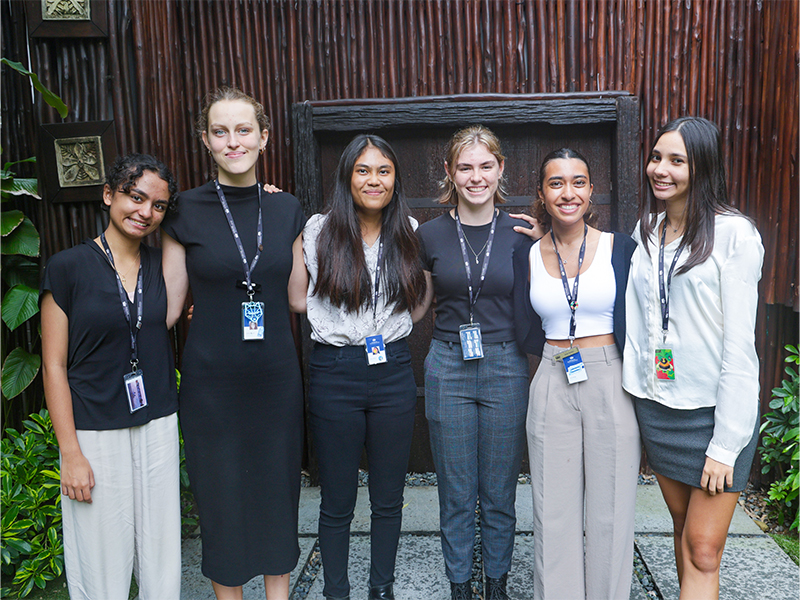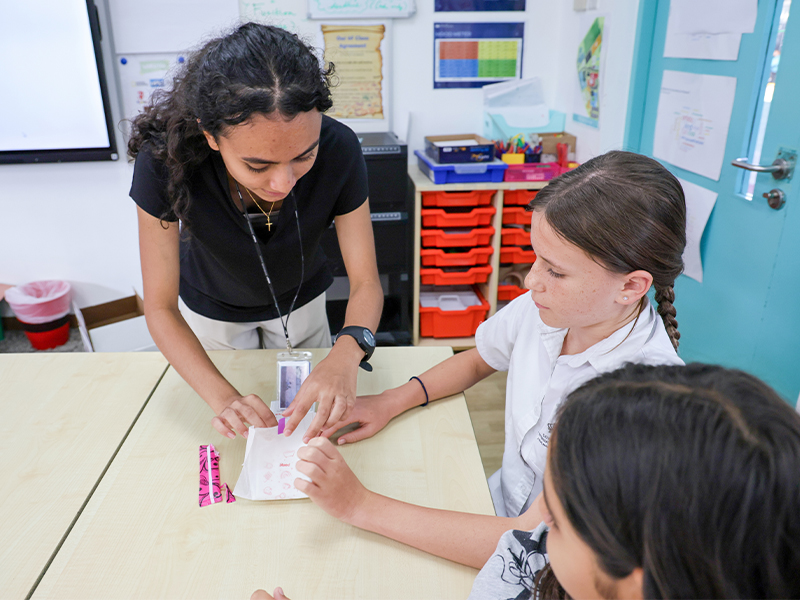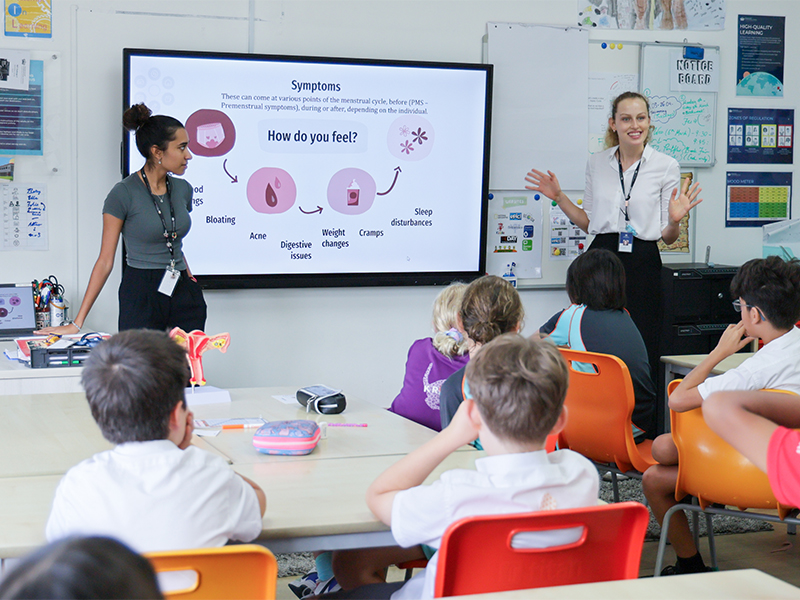Periods (or menstruation), while important, might be an awkward topic for some people to discuss. These Sixth Form students at Dover Court International School (DCIS) want to normalise talking about it, and about period health and menstrual products. They’re doing so by openly discussing and sharing it from a student’s point of view.
Breaking stigmas on period health
Earlier this year, the six students were awarded the Nord Anglia Education Social Impact grant for the Period Project. This was part of Dover Court International School’s Creativity, Activity, Service programme.

The project was originally set up three years ago by a group of IBDP students at the school. Initially, it was to provide menstrual products to DCIS students and to the wider community. Last year, it was expanded to also include peer education in Dover Court International School. The latter continues this year with the addition of uterus models made possible by the grant.
The educational sessions include teaching Year 6 and Year 8 students how to deal with periods and building a period kit. They also cover the biology aspects that both boys and girls should know about. The sessions are designed to help break down the stigma surrounding talk about periods. They’re held as part of Dover Court’s Personal Social Health and Economic (PSHE) curriculum.
Peer-to-peer support
Through this peer-to-peer project, the older students make the topic of how to deal with periods more relatable. This diminishes feelings of embarrassment that often accompany it. The Sixth Form students also develop leadership skills through mentoring younger students.
The guidance and support from student leaders for their younger peers instil a sense of community and belonging among Dover Court students. It fulfils a core component of the school’s values.
Hear from the student leaders…
Shya
“The objective was to educate boys and girls about period health and the biology around them. We divided it into two sessions – a mixed session with both genders and one with girls only to answer any questions they might have. These include how to deal with period cycle changes throughout the month, what the flow means, introducing different menstrual products, and how to help the symptoms.
We learned about periods in Primary and Secondary science lessons as well as during PSHE in Year 7. However, girls may be more comfortable to talk about periods with a fellow student without fear.
Last year, my two younger sisters started asking me questions about my menstrual cycle. I realised not all girls can ask an older sister or mum about it. The way girls are raised may affect how they talk about periods.”
Astrid
“Our aim is to be seen as period mentors. Younger Dover Court International School students might feel more comfortable talking to other students instead of adults. We know what they’re going through, as we were in their situation just a few years ago.
I have two younger brothers and boys need to know what the period is. We want to destigmatise how we talk about periods, along with the awkwardness of how girls may have to excuse themselves. Periods aren’t supposed to be scary; if their partner, sister or friend has a period, they shouldn’t see it as something weird or awkward. It’s a natural thing that happens to women every month.”
Dover Court International School is at 301 Dover Road.
6775 7664 | dovercourt.edu.sg
This article about menstrual products and how to deal with periods first appeared in the November 2024 edition of Expat Living. You can purchase the latest issue or also subscribe so you never miss a copy! Now find out fun things to do in Singapore with kids and great indoor and outdoor playgrounds in Singapore.
Finally, to make the most of living in Singapore, read our latest City Guide here for free!
Don't miss out on the latest events, news and
competitions by signing up to our newsletter!
By signing up, you'll receive our weekly newsletter and offers which you can update or unsubscribe to anytime.





